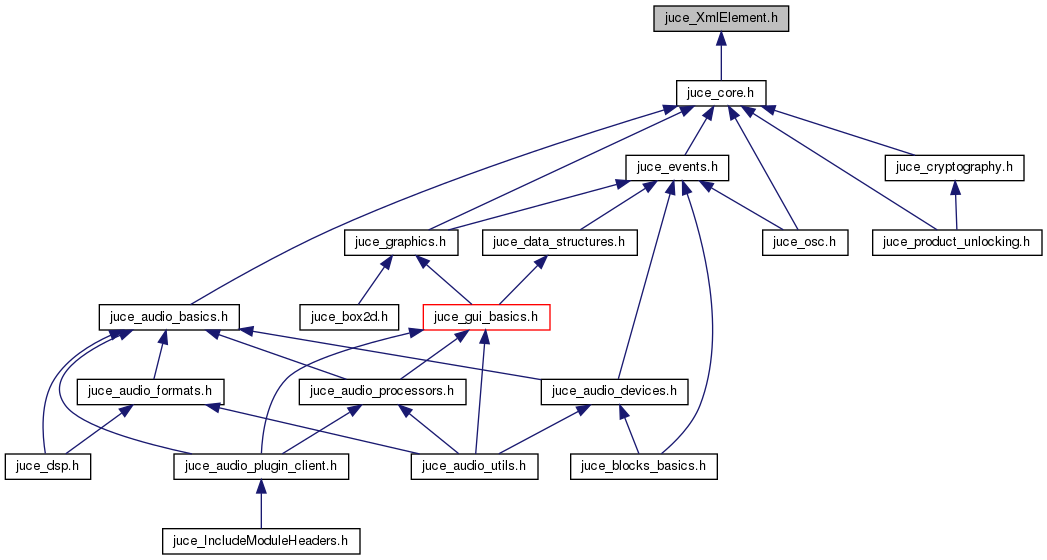
Classes | |
| class | juce::XmlElement |
| Used to build a tree of elements representing an XML document. More... | |
| struct | juce::XmlElement::XmlAttributeNode |
Namespaces | |
| juce | |
Macros | |
| #define | forEachXmlChildElement(parentXmlElement, childElementVariableName) |
| A handy macro to make it easy to iterate all the child elements in an XmlElement. More... | |
| #define | forEachXmlChildElementWithTagName(parentXmlElement, childElementVariableName, requiredTagName) |
| A macro that makes it easy to iterate all the child elements of an XmlElement which have a specified tag. More... | |
| #define forEachXmlChildElement | ( | parentXmlElement, | |
| childElementVariableName | |||
| ) |
A handy macro to make it easy to iterate all the child elements in an XmlElement.
The parentXmlElement should be a reference to the parent XML, and the childElementVariableName will be the name of a pointer to each child element.
E.g.
| #define forEachXmlChildElementWithTagName | ( | parentXmlElement, | |
| childElementVariableName, | |||
| requiredTagName | |||
| ) |
A macro that makes it easy to iterate all the child elements of an XmlElement which have a specified tag.
This does the same job as the forEachXmlChildElement macro, but only for those elements that have a particular tag name.
The parentXmlElement should be a reference to the parent XML, and the childElementVariableName will be the name of a pointer to each child element. The requiredTagName is the tag name to match.
E.g.